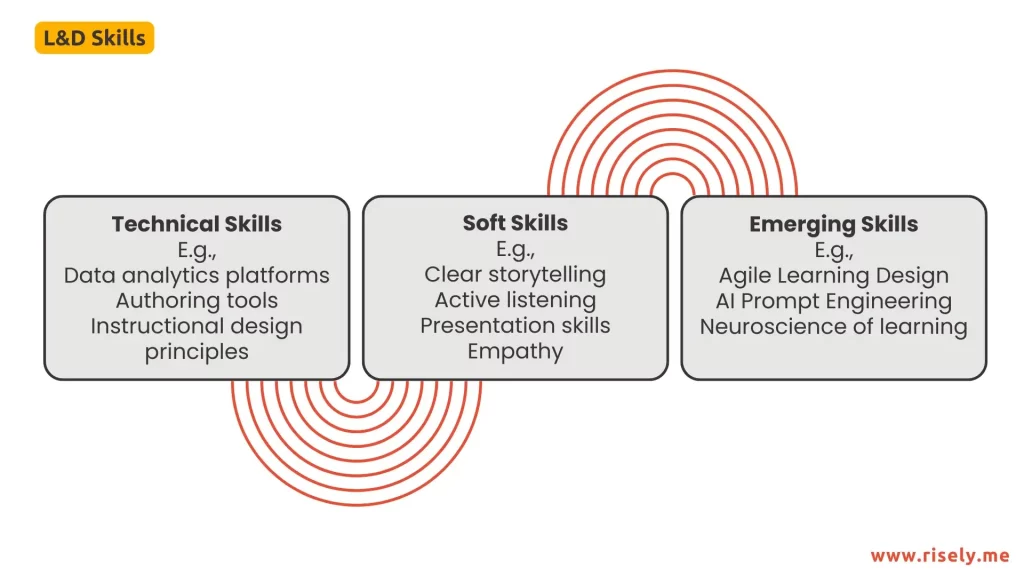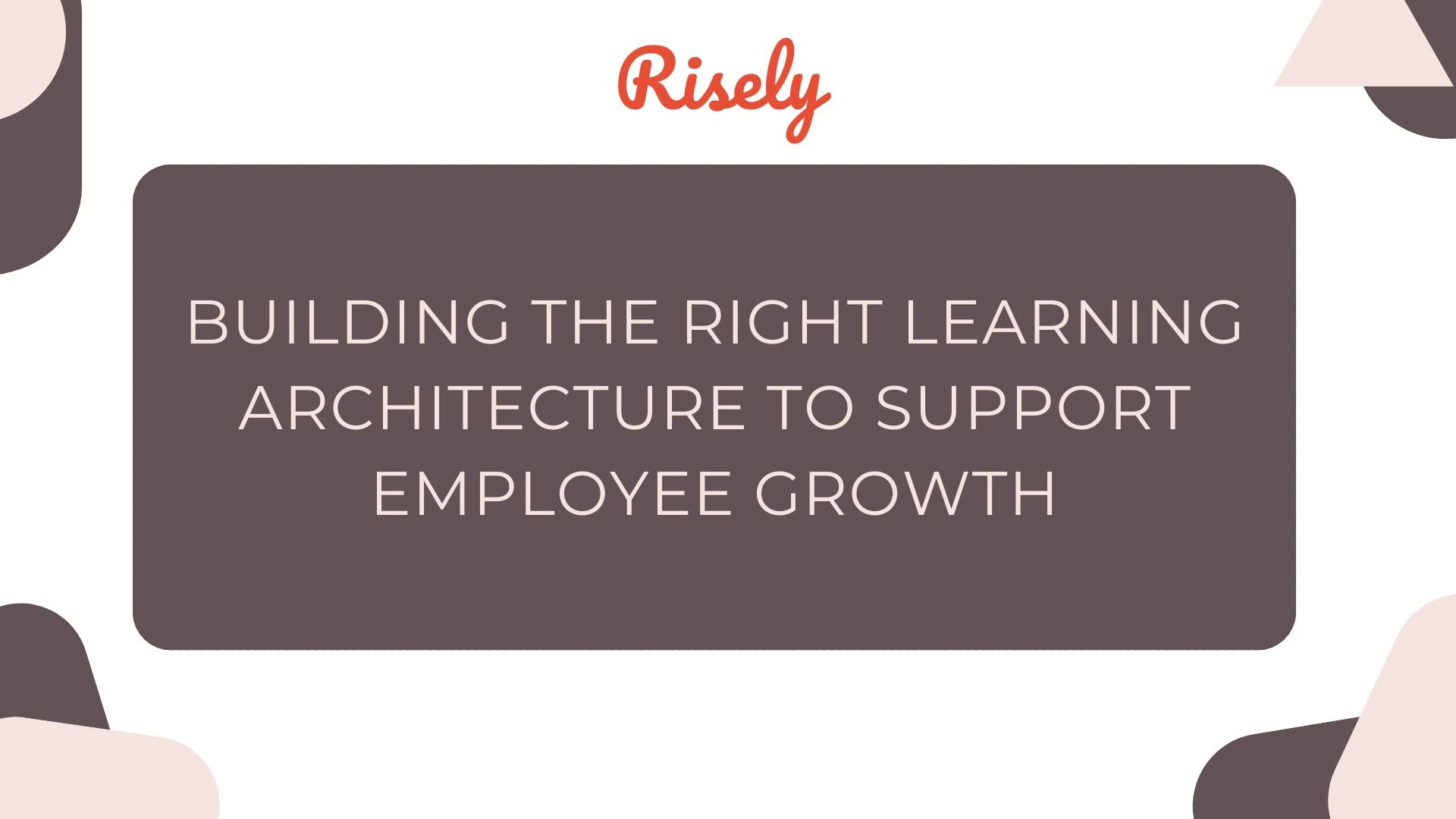Where Do Learning and Development Career Paths Go Today?
The world of professional growth is changing quickly. Learning and development has become very important for success in organizations. The old days of boring training sessions and one-size-fits-all methods are gone. Now, L&D experts use new ideas, advanced technology, and understand how adults learn best. They create fun and effective learning experiences that help employees grow and improve their leadership skills. This field offers many different and exciting job roles. So, if you think about a career in L&D, keep reading!Decoding Learning and Development Career Paths
Learning and development career paths cover many areas. This includes training programs, instructional design, and leadership development. In these roles, instructional designers focus on creating effective learning experiences. Development specialists work on building leadership skills. Jobs in L&D connect with human resources and data analytics.A quick analysis of our environment
The job of an L&D professional has changed a lot from being just a corporate trainer. You have new technologies like learning management systems (LMS), virtual reality, and fun learning platforms, which are changing how training is made and given. Now, L&D specialists must use these technologies to create learning experiences that are engaging and fit different learning styles. They are now key partners in the company, making sure learning plans meet business needs, encouraging new ideas, and supporting a culture of ongoing growth. As companies understand how important it is to have skilled and flexible workers, they need L&D professionals. These experts can help them adapt and succeed in this changing environment. But here’s the deal: We are also in unprecedented times. There are economic downturns that have led to significant changes in how organizations view L&D, the level of importance this function gets, and even layoffs. Future of Work Expert and Author, Edie Goldberg, recently joined us for a podcast where she shared something relevant for us: How long did the job description that you signed up for was really the parameters of your job? The key idea in figuring out L&D career paths today is that we need to constantly evolve as the environment changes. It helps us get fulfilment at work, and also keeps us fresh in terms of the skills and abilities we bring to the table. You can check out the full conversation below:What are the key skills in demand from L&D professionals?
Broadly, we can divide L&D competencies into hard and soft skills just like every other job role. But beyond the basics, there are a couple of skills that you should focus on:
- Analytical skills: As per LinkedIn, the number of L&D professionals listing “analytical skills” as one of their strong areas grew by a staggering 54% during the past year. This aligns well with the increased emphasis to tie in L&D initiatives with business objectives and grab a seat at the decision makers’ table. It also matches the increased need to adopt a data-driven approach toward work.
- Human skills: The second interesting area that every L&D professional should focus on emerges as “human skills.” 9 out of 10 L&D professionals surveyed by LinkedIn noted their importance. But what are human skills? This term refers to the set of skills like interpersonal communication, presentation, people management, and problem solving, which help you deal with the people around you effectively. It is quite important to consider because advanced tech like AI is gaining momentum and achieving more of the basic competencies that we hold.
Other Interesting Reads
What You Will Need to Get Started in an L&D Career?
A strong start in adult learning, instructional design, and training delivery is very helpful. You don’t always need a specific degree in Learning and Development, but having a background in human resources, education, or communication can be useful as you start charting your L&D career path. Employers often want people with strong communication, interpersonal, and presentation skills. This is important because sharing information clearly and connecting with learners are key parts of the job. Knowing how to use technology used in L&D, like LMS and elearning authoring tools, can also help when you apply for entry-level jobs.#1 Finding your place in the L&D industry
Building a strong resume and portfolio is important too. Showcasing relevant experience, like volunteering for training projects or creating learning materials, can help you stand out.- Find Your Niche: Figure out which part of L&D you like best. Do you prefer instructional design, eLearning development, leadership development, or something else? Picking a specific area can help you focus your job search and growth in your career.
- Get Experience: Look for ways to gain practical skills in L&D, even if they are not full-time jobs. Volunteering to help with training programs, making learning materials for community groups, or leading workshops can give you useful hands-on experience.
- Consider Certifications: Think about getting important certifications to increase your credibility. Having certifications in instructional design, learning management systems, project management, or training methods can make you stand out as a candidate.
#2 Connecting with the whole wide world
Meeting other L&D workers, leaders, and experts can give you helpful insights and chances to grow. You can take advantage of networking by going to L&D events, joining webinars, and getting involved in online groups and forums about L&D. Building a strong network can help you find mentors, work with others, and stay updated on industry trends. Platforms like LinkedIn are great for connecting with other L&D workers. You can share your ideas and join in on discussions. Stay connected and participate actively. A strong network can really help your career grow. Primarily, you can explore:- 7 Top Learning And Development Newsletters For 2025
- Top 7 Learning And Development Podcasts You Must See
- 8 Learning and Development Conferences You Need to Attend, 2024-25
#3 Keeping up with changes
As technology changes how businesses operate, learning and development is seeing a wave of innovation. This is giving rise to new and interesting roles that change how companies think about learning and development. New technologies like artificial intelligence (AI), virtual reality (VR), augmented reality (AR), and data analytics are changing how learning and development is done. This has led to new job roles such as AI-Powered Learning Developers, VR/AR Experience Creators, and Learning Analytics Specialists. The question for you is how are you going to handle this? While there are plenty of concerns around the changed roles, it’s important to remember that continuous learning is vital to progressing professionally. That’s the mantra to moving forward and building a learning and development career path that’s uniquely yours. In a recent conversation with Kelli Dragovich over the Risely podcast, we popped this question, “What do you see 2025 like for the HR community?” Her answer centered around cautious optimism. She advised developing a point of view (a vision) and focusing on what you can do to get there. Catch more insights from an industry veteran with decades of experience here:Wrapping Up
The L&D field is always changing. It adapts to new technologies, shifts in the workforce, and the need for ongoing learning. As we look ahead, L&D career paths will continue to evolve. This growth brings both new chances and challenges for both new and experienced professionals. To succeed in this changing world, you need to stay committed to learning. You should be open to using new technologies and focus on the needs of learners. The future of L&D will belong to those who can adapt, think ahead, and want to help people and organizations achieve their goals.Setting the right goals defines the accuracy of your path to success!
Take this FREE goal-setting self-assessment by Risely now to test the efficacy of your goal-setting.
Building The Right Learning Architecture To Support Employee Growth
In this blog, we’ll walk you through how designing the right learning architecture transforms your workforce and gives your organization…
Rethinking leadership competency models for the AI age
Rethinking leadership competency models for the AI age What does a good leader look like? There’s no single answer to…
AI role play training partners for your people managers
AI role play training partners for your people managers Leadership development is not just a one-time thing. It is a…
How to create training objectives for business success?
How to create training objectives for business success? Why are we conducting training? That’s where the story starts for all…
Competency assessments are old school, more so for managers
Competency assessments are old school, more so for managers While running an organization, we are always searching for the best…


